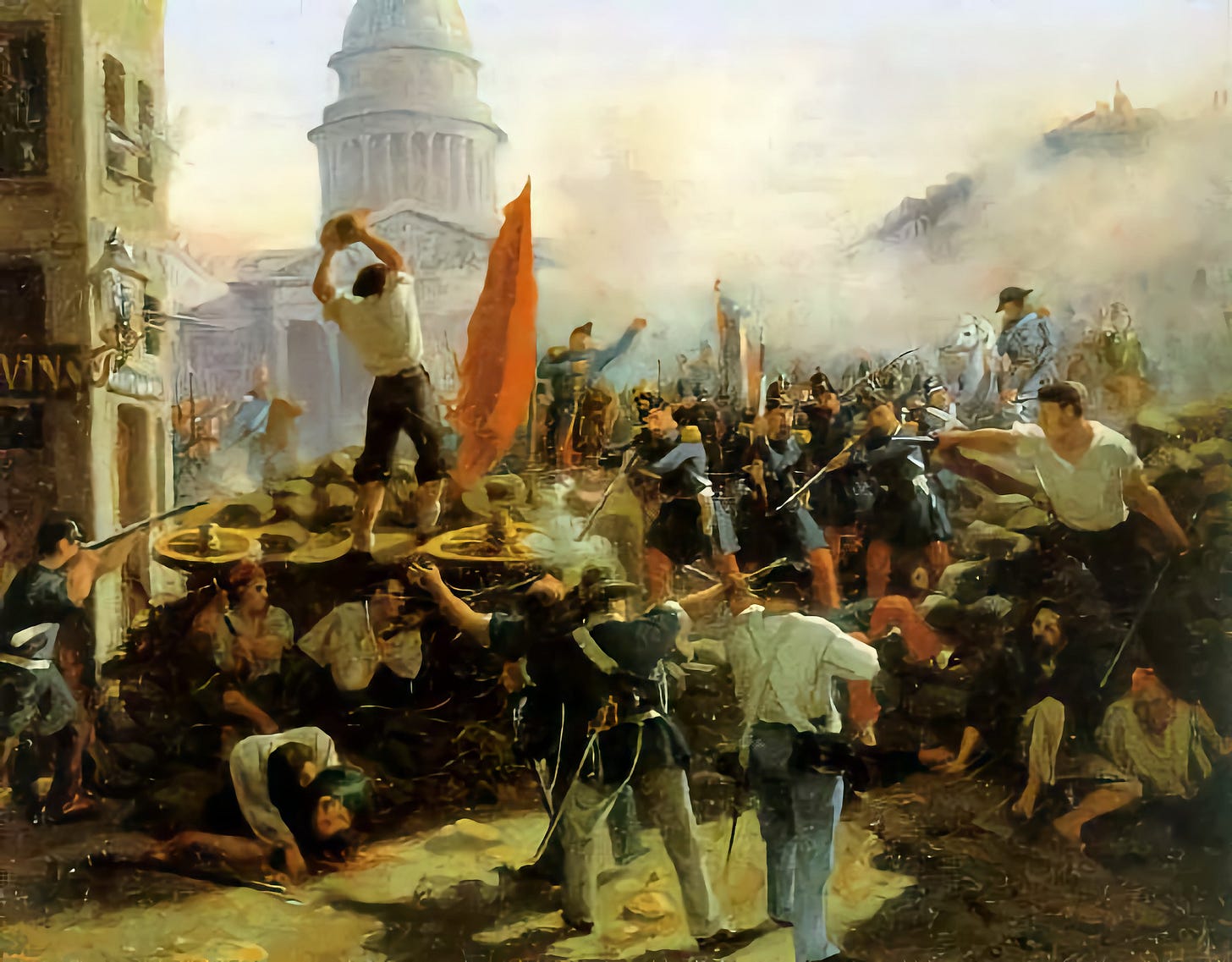The present age, part 1
On the unpredictability of political revolt
“The essence of the lie implies in fact that the liar actually is in complete possession of the truth which he is hiding.” – Sartre, Being and Nothingness
PART 1 OF 2
In my January 19, 2021, newsletter “American Putsch,” I said that “As the cumulative medical, social and economic effects of the manipulated global lockdown agenda build to a devastating crescendo of human suffering over the coming 12 to 18 months, the political impact will register like a sonic boom rippling across the political spectrum, and fear will give way to new forms of citizen-driven political action.”
Is this likely? What might it look like? Is there historical precedent?
AN AGE OF PUBLICITY
In 1846, commenting presciently on the rise of mass media and its elevation of information over knowledge, no less astute an observer of history than Søren Kierkegaard wrote.
“A Revolutionary Age is an age of action; the present age is an age of advertisement or publicity – nothing happens, but there is instant publicity about it. A revolt in the present age is the most unthinkable act of all.”
Two years later, the Revolutions of 1848 swept Europe and inspired revolt in more than 50 nations across the world – all before the existence of so called social media!
Although many of these revolts were eventually crushed, historians today see them as “the only truly European revolution there has ever been,” and one that resulted in a new kind of politics in which the political center expanded dramatically to accommodate overwhelming demands for change from across the political-economic spectrum. It was the reverse of what is happening today when demands for change are dominated by the fringes as the center contracts.
But for our purposes, the salient question is – how did Kierkegaard, one of the great thinkers of the time, miss the most significant political revolution of his era?
Tom Hayden, a close student of revolutionary movements whatever one thinks of his personal politics, offers an insightful answer.
"Any oppressed people will always look like they are asleep to everybody from the oppressor to the organizers to the experts who are observing and writing about them . . .The people who seem asleep always awake at the most unusual times. No one ever predicts when or where people will rise up. . .If you predict a revolt here, it will start there.”
History does not unfold on our timetable nor in accord with our preconceptions about what form it will take, but it offers a valuable perspective on the deeper undercurrents that typically drive political change.



